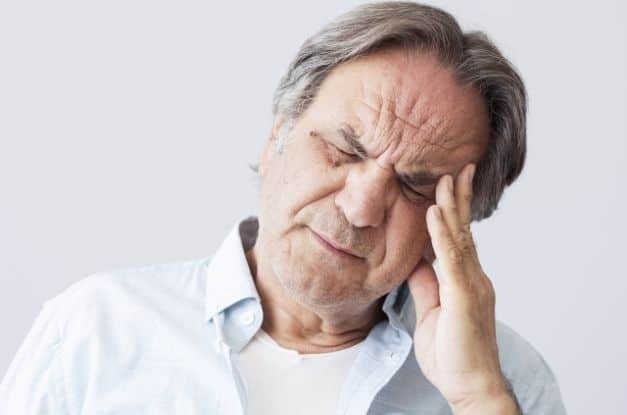As we age, noticing more aches and pains than usual isn’t unusual. Knees that were never sore before sure are sore now. Wrists and ankles don’t feel as flexible as they used to, and even a friendly game of basketball leaves a lot more unfriendly reminders the next morning.
But not all aches and pains are just parts of the rough road of getting older. Severe pains in your head and face may point to more serious medical issues—one of which you can’t write off with an ice pack, a few aspirin, and a whole lot of patience. If you’re experiencing a great deal of pain, one of these causes of pain in the face and head may be the culprit.
Acute Sinusitis
An acute case of sinusitis occurs when an infection causes the sinus membranes to overproduce mucus in an effort to flush the infection. The ensuing inflammation puts pressure on the nasal passages and can cause pain throughout the face, even spreading out to the ears as well. If your sinusitis doesn’t resolve itself after several days, see your ear, nose, and throat doctor.
Trigeminal Neuralgia
The trigeminal nerve, which supplies sensation to the face and jaw, can in rare cases supply excruciating pain the likes of which its sufferers couldn’t have imagined. Many doctors consider trigeminal neuralgia to be among the most painful experiences one can have. A trigeminal neuralgia attack is debilitating, with intense and localized pain so severe as to impede normal functioning. Even the slightest stimulus, such as brushing teeth or talking, can trigger an attack. Treating trigeminal neuralgia requires anticonvulsant medication or interference with the trigeminal nerve, most often through surgery or ultrasound ablation.
Temporomandibular Joint Dysfunction
Pain in the temporomandibular joint, or TMJ, can complicate chewing, speaking, or any movement of the lower jaw. In some cases, the pain can spread as far above the jawbone as the ear. Trauma, arthritis, and grinding of the teeth in your sleep are the most common causes of TMJ dysfunction. In most cases, you can address TMJ pain yourself through lifestyle changes such as using a mouth guard for sleep. If pain is persistent, however, you may need to see a doctor.
Migraine
Migraines tend to occur less frequently as you age, but they can still arise past the age of 55, delivering unpleasant interruptions to one’s everyday routine. Migraines differ from normal tension headaches, with extreme sensitivity to light and sound accompanying the severe pain. If you suspect this is one of the causes of pain in your face and head, reach for a reliable NSAID and try to make lifestyle changes to prevent more attacks.






